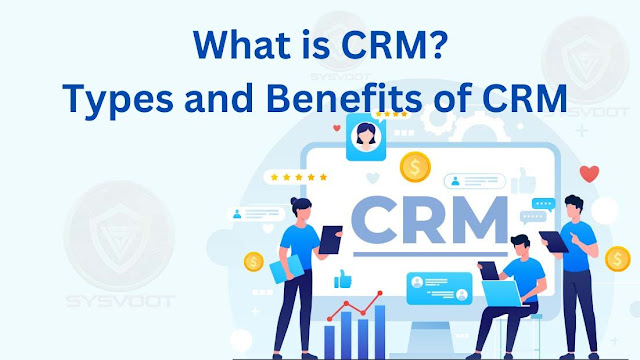What is CRM (Customer Relationship Management)?
CRM stands for Customer Relationship Management. It is a business strategy and technology used to manage and analyze customer interactions and data throughout the customer lifecycle, with the goal of improving customer relationships and business performance. CRM systems can include tools for customer data management, marketing automation, sales force automation, and customer service and support. CRM consulting services can provide companies with expert advice and guidance on how to effectively implement and use a CRM system.
Read Also: Salesforce VS Zendesk: Which CRM is Best for Your Business
Types of CRM (Customer Relationship Management)
1. Operational CRM:
This type of CRM is focused on automating and streamlining day-to-day business processes such as sales, marketing, and customer service. It helps companies manage customer interactions and data across various channels, including email, phone, and social media.
2. Analytical CRM:
This type of CRM is focused on using customer data to gain insights and make data-driven decisions. It includes tools for data mining, reporting, and analytics to help companies understand their customers better and improve their marketing, sales, and service strategies.
3. Collaborative CRM:
This type of CRM is focused on fostering collaboration and communication among different departments and teams within a company. It includes tools for team collaboration, knowledge management, and workflow management to help companies improve the efficiency and effectiveness of their customer interactions.
4. Strategic CRM:
This type of CRM is focused on aligning a company's overall business strategy with its customer relationship management. It involves using customer data and insights to inform decisions and actions at the highest level of the organization, and is often used to develop long-term customer loyalty and retention.
5. Mobile CRM:
This type of CRM is focused on providing mobile access to customer data and tools. It allows sales, marketing, and service teams to access and update customer information, track leads and opportunities, and respond to customer inquiries from their mobile devices.
6. Social CRM:
This type of CRM is focused on engaging with customers through social media channels such as Facebook, Twitter, and LinkedIn. It includes tools for monitoring social media conversations, tracking customer sentiment, and managing social media marketing campaigns.
Read Also: The Complete Guide to Salesforce CRM Integration
Benefits of CRM (Customer Relationship Management)
1. Improved customer relationships:
CRM allows companies to manage and analyze customer interactions and data across various channels, helping them to understand their customers better and build stronger relationships with them.
2. Increased sales:
CRM can help companies identify new sales opportunities and track the progress of existing ones, allowing them to close more deals and increase revenue.
3. Better marketing:
CRM can help companies segment their customer base and target their marketing efforts more effectively, resulting in more successful marketing campaigns.
4. Enhanced customer service:
CRM can help companies manage customer complaints and inquiries more efficiently, resulting in faster resolution times and happier customers.
5. Improved collaboration:
CRM can help different departments and teams within a company collaborate more effectively and share information, leading to improved decision-making and better customer interactions.
6. Greater efficiency:
CRM can automate and streamline many business processes, such as sales and marketing, resulting in greater efficiency and cost savings.
7. Better decision-making:
CRM can provide companies with valuable insights and data to inform their business decisions, leading to better strategic planning and execution.
8. Increased customer loyalty and retention:
By understanding and addressing customers' needs and preferences, companies can increase customer loyalty and retention, leading to increased revenue over time.
9. Greater mobility:
Mobile CRM allows employees to access and update customer information from anywhere, leading to improved productivity and responsiveness.
10. Better social media engagement:
Social CRM allows companies to engage with customers on social media channels, providing an opportunity to increase brand awareness and customer loyalty.
Final Words
Overall, CRM provides valuable insights and data to inform business decisions, increase customer loyalty and retention, and provide employees with greater mobility. If you are looking for CRM consulting services, then you can hire CRM consulting firm in Texas that helps companies manage and analyze customer interactions and data throughout the customer lifecycle, with the goal of improving customer relationships and business performance. The service includes various tools for customer data management, marketing automation, sales force automation, and customer service and support. With Sysvoot CRM, companies can expect to improve customer relationships, increase sales, enhance marketing efforts, and improve collaboration and efficiency. Additionally, the service The service also includes social CRM capabilities to help companies engage with customers on social media channels.
For Guest Posting related inquiry visit "Write for Us" section

